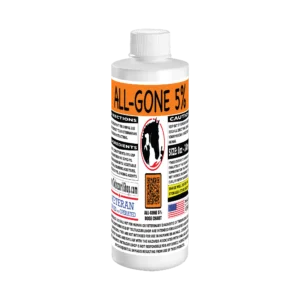-
Animal Products
Albon for Dogs
$19.95 – $349.95 Select options This product has multiple variants. The options may be chosen on the product pageRated 0 out of 5
Albon for Dogs
At Albon for Dogs, we understand how worrying it can be when your dog is sick. That’s why we’ve dedicated ourselves to providing pet owners with reliable solutions to combat coccidiosis and other parasitic infections in dogs. With a proven formula and trusted by veterinarians worldwide, Albon for Dogs offers an easy-to-use, effective treatment that gets your dog back to health quickly. As part of the trusted Toltrazuril Shop family, a leader in the pet health industry, we are committed to providing high-quality solutions that promote better health and well-being for your pets.
What is Albon for Dogs?
Albon for Dogs is an oral suspension containing 5% Sulfadimethoxine, designed to treat coccidiosis and other bacterial and protozoal infections in dogs. This liquid medication is specifically formulated to fight parasitic infections like coccidiosis, a common and often dangerous disease caused by protozoa. Coccidiosis is typically seen in puppies, but it can affect dogs of all ages. Albon for Dogs works by preventing the growth of harmful microorganisms, restoring your dog’s health and energy.
Why Choose Albon for Dogs?
As pet owners, you want nothing more than for your dog to be healthy and happy. When your pet is sick, it can be hard to watch, but with Albon for Dogs, you can rest assured that you’re giving your dog the best treatment available. Here’s why Albon is the trusted choice:
- Effective Treatment for Coccidiosis: Albon for Dogs is specially formulated to treat coccidiosis, an infection that causes symptoms like diarrhea, dehydration, and lethargy in dogs. This treatment helps to control the infection and speed up recovery.
- Easy to Administer: The liquid form of Albon for Dogs makes it simple to give your dog the correct dose. It can be administered directly or mixed with your pet’s food, making the treatment process stress-free.
- Fast-Acting: Albon for Dogs works quickly to reduce parasitic loads and restore your dog’s health. Many dogs show signs of improvement in just a few days after starting treatment.
- Safe and Reliable: Albon for Dogs is safe for use in dogs of all ages when used as directed. Whether your dog is a puppy or an adult, Albon can help combat parasitic infections with minimal risk of side effects.
- Veterinarian Recommended: As part of the Toltrazuril Shop family, which has been a leader in providing reliable animal health solutions, Albon for Dogs is trusted by veterinarians and pet owners worldwide.
How Albon for Dogs Works
Albon for Dogs contains Sulfadimethoxine, an antibiotic that targets the bacteria and protozoa causing coccidiosis and other infections in dogs. By preventing the growth of these harmful organisms, Albon helps restore your dog’s health. The fast-acting formula means your dog can feel better and start recovering sooner.
Whether your dog is dealing with gastrointestinal issues caused by coccidiosis or bacterial infections, Albon works to reduce symptoms like diarrhea, loss of appetite, and dehydration. It is a simple yet effective solution to help your pet feel better quickly.
How to Use Albon for Dogs
Dosage Instructions
- First Dose: 25 mg per pound (11 mg per kg) of body weight.
- Daily Maintenance Dose: 12.5 mg per pound (5.5 mg per kg) for 3-5 days, or as directed by your veterinarian.
Administration
- Shake the bottle well before use.
- You can administer Albon for Dogs directly into your dog’s mouth with a syringe or mix it with food for easier consumption.
Always follow your veterinarian’s recommendations for the correct dosage and treatment plan.
Albon for Dogs Sizes
We offer Albon for Dogs in a variety of sizes to meet your needs:
- 1 oz (30 mL): Ideal for individual pets or small households.
- 4 oz (120 mL): Perfect for pet owners with multiple dogs.
- 8 oz (240 mL): Suitable for medium-sized households or small kennels.
- 32 oz (960 mL): Designed for larger households, breeders, or dog shelters.
- Half Gallon (64 oz): For veterinary clinics or animal rescue centers.
- 1 Gallon (128 oz): Ideal for large veterinary practices or farms.
Why Albon for Dogs is the Right Choice
At Albon for Dogs, we aim to make your pet’s recovery as quick and stress-free as possible. Thanks to our partnership with Toltrazuril Shop, a leader in providing animal health solutions, we bring you a trusted product that effectively tackles parasitic infections and supports your dog’s overall well-being. Whether you’re dealing with a mild infection or a more serious case, Albon for Dogs offers fast relief and helps your pet get back to their normal, playful self in no time.
Why Trust Toltrazuril Shop?
Our parent website, Toltrazuril Shop, has been a leader in providing reliable solutions for managing animal health. With a long history of providing high-quality treatments and expert advice, Toltrazuril Shop is your trusted partner in keeping your pets healthy. By offering a range of medications for various pet health needs, including Albon for Dogs, we aim to make pet care simple and accessible for everyone.
Get Albon for Dogs Today
If your dog is suffering from coccidiosis or another parasitic infection, don’t wait—give them the help they need with Albon for Dogs. With fast-acting relief and simple administration, it’s the perfect solution for getting your pet back on their paws. Order now and experience the difference Albon can make in your dog’s health and happiness.
At Albon for Dogs, we’re here to support you and your pet every step of the way, offering safe and effective solutions for managing parasitic infections. Let us help you keep your dog healthy, happy, and thriving.
